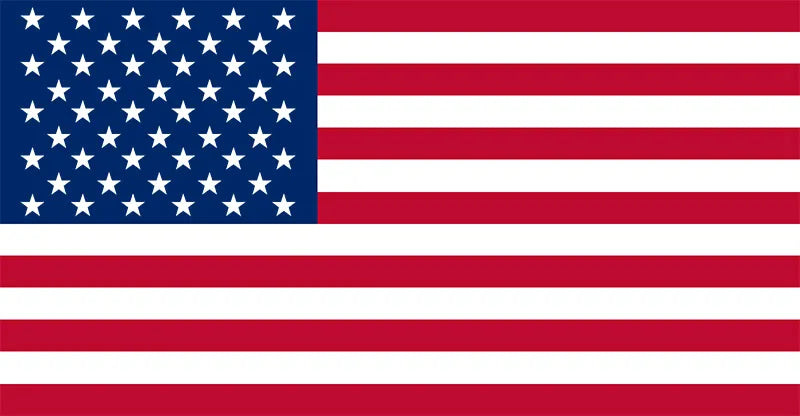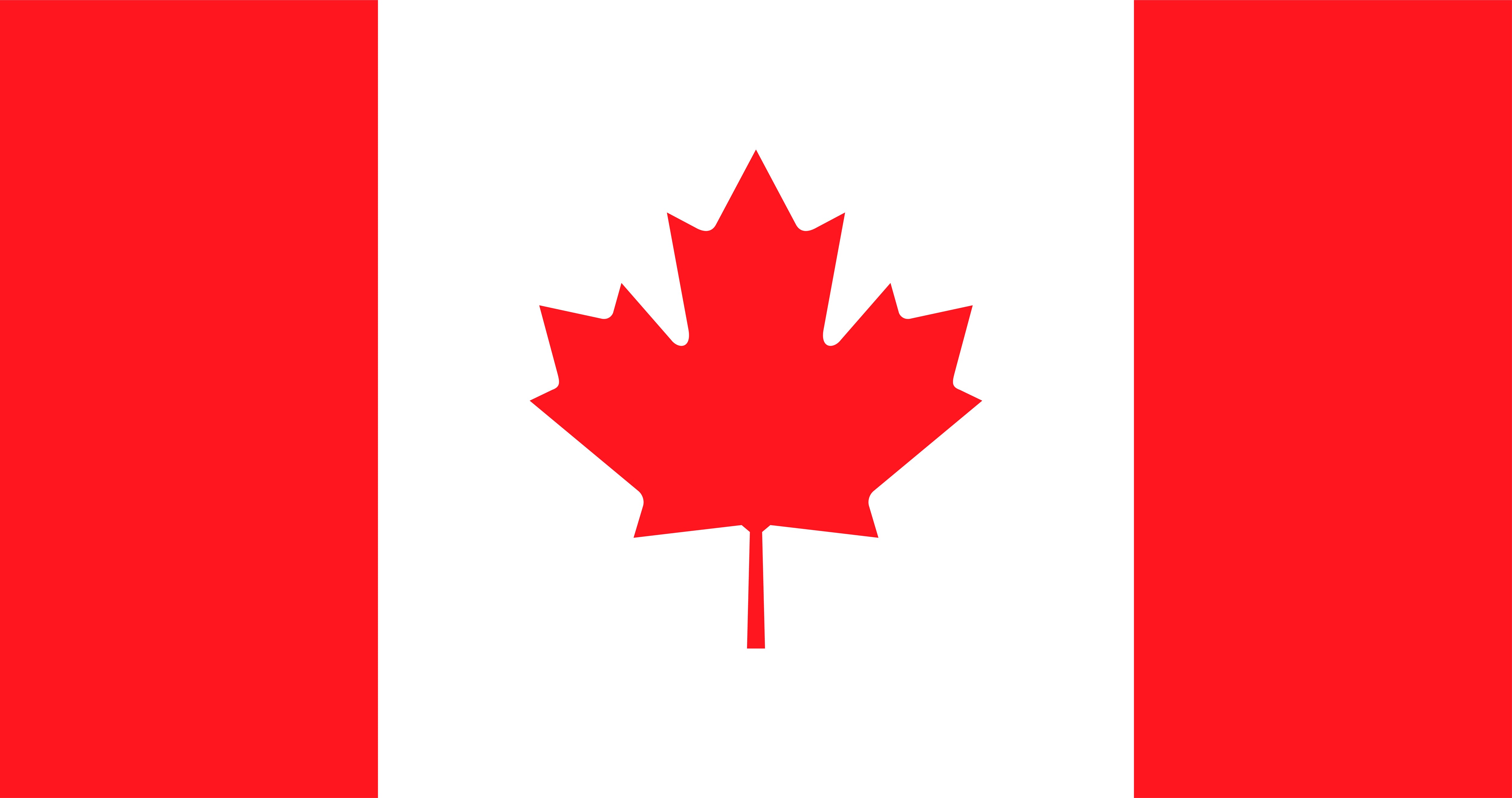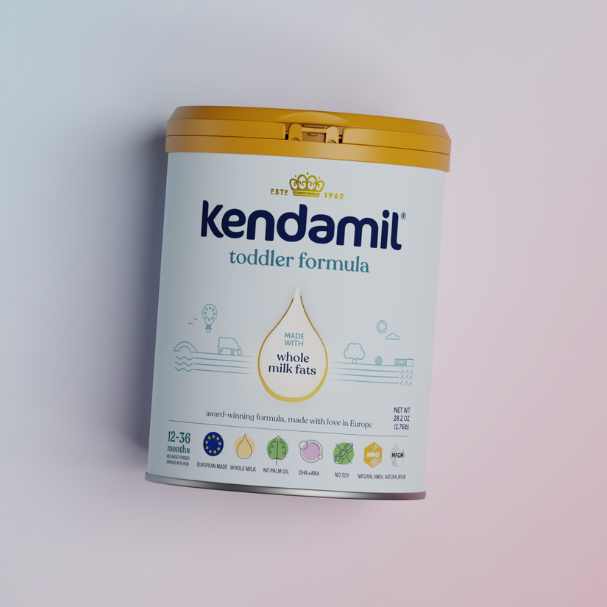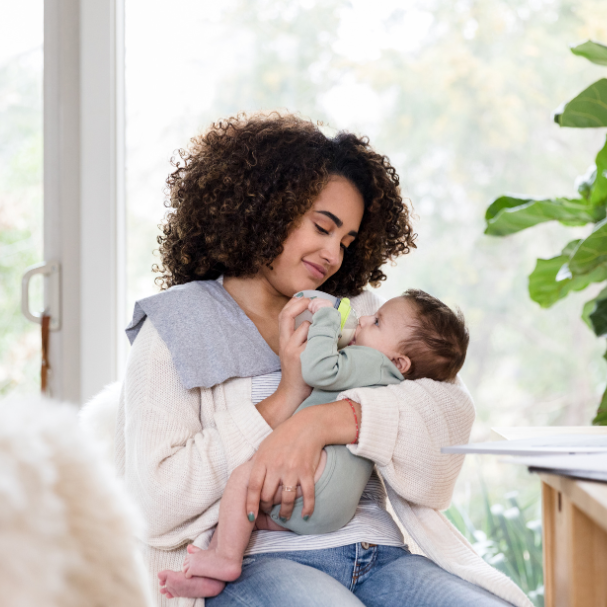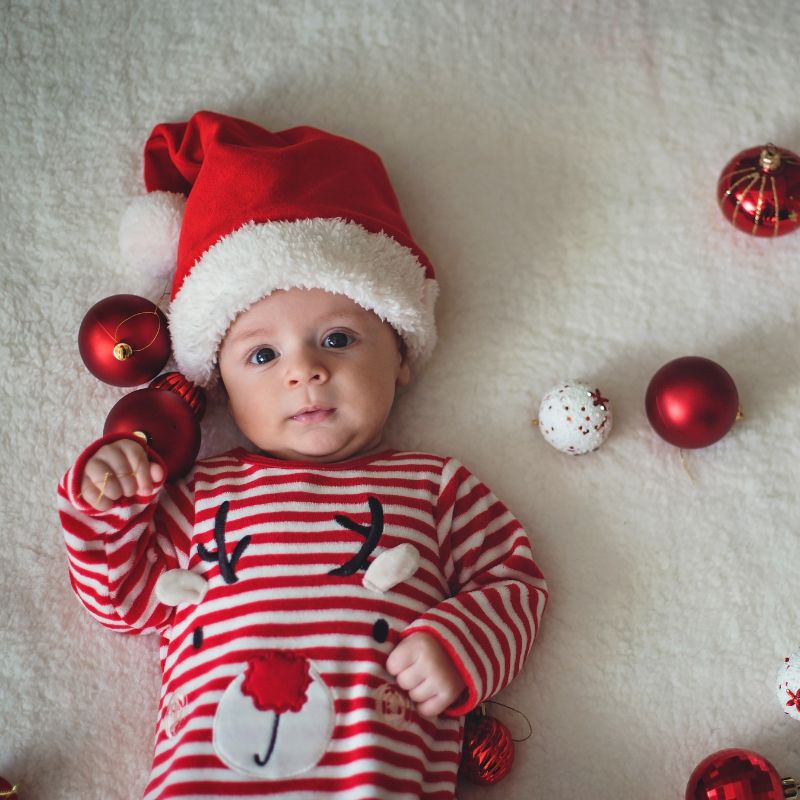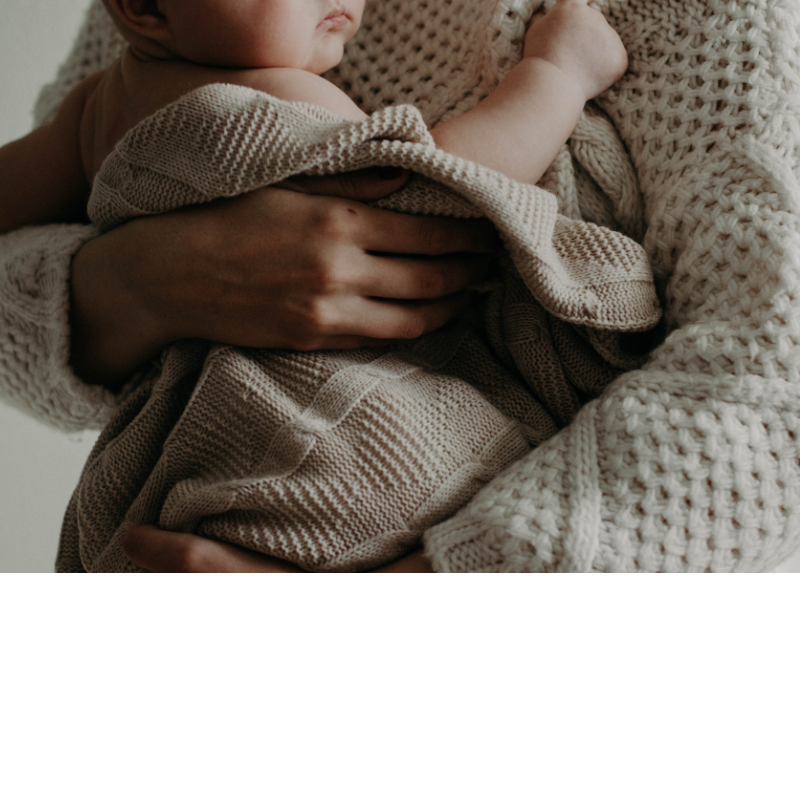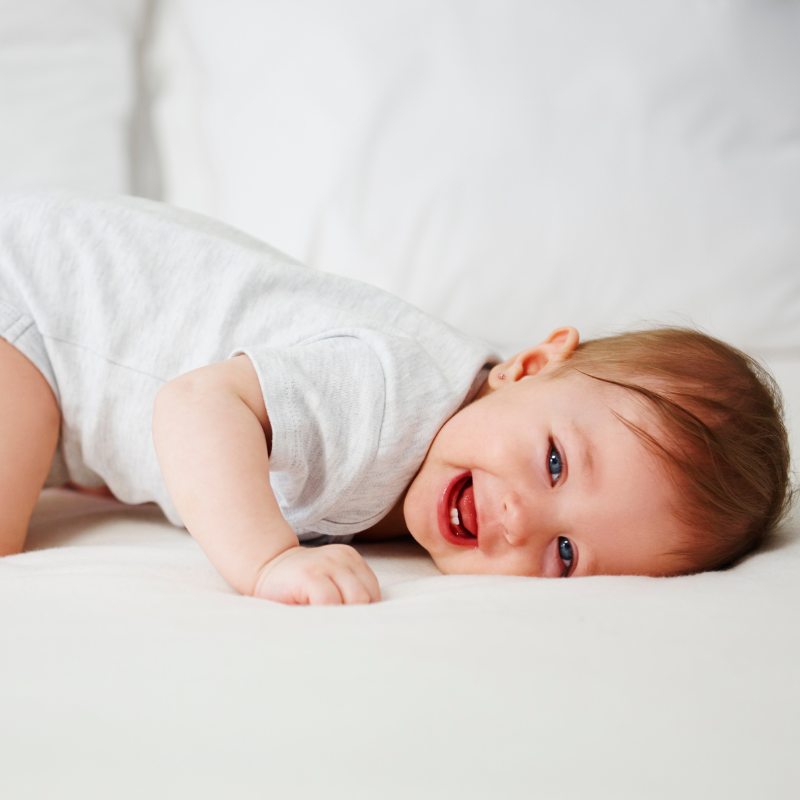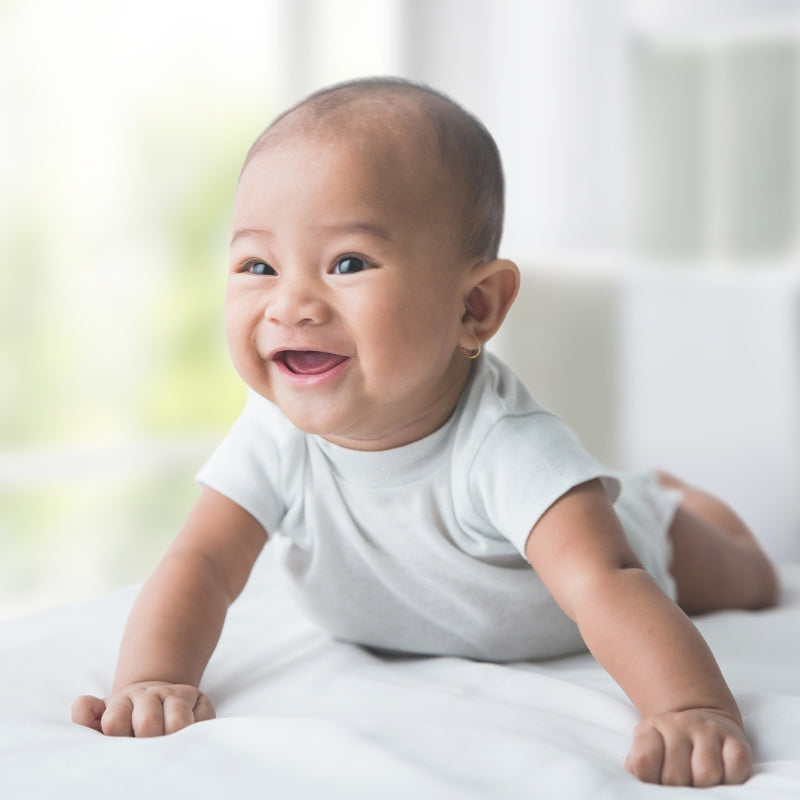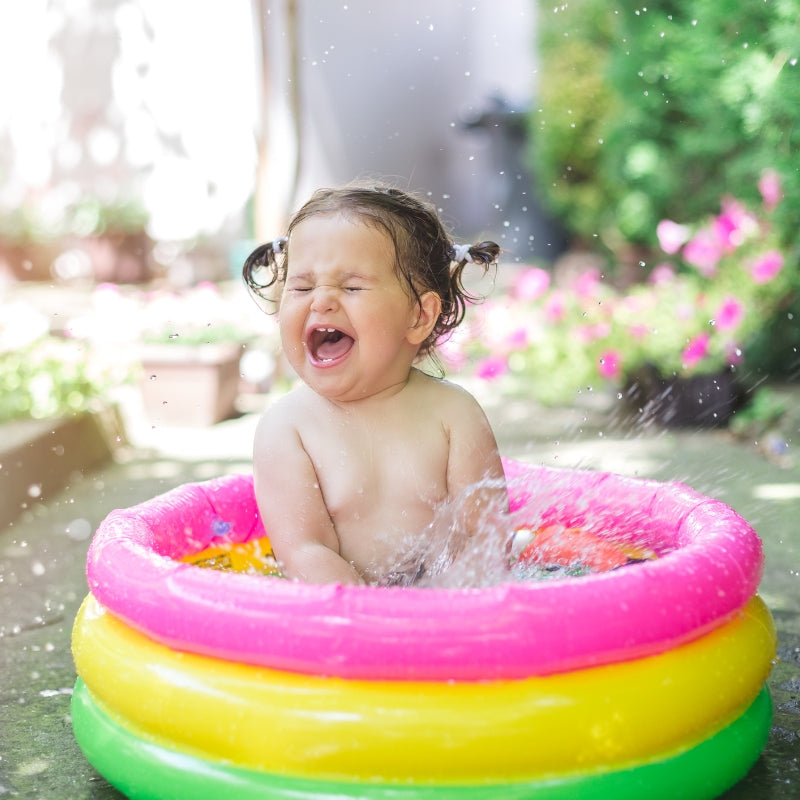From takeoff to landing we’ve got all the tips you need to navigate baby’s first flight experience. In this blog we’ll cover everything you need to know about getting through security with baby, how to keep baby entertained on the flight, as well as tips on managing their sleep and feeding routine while up in the air.
How do I book infant tickets for air travel?
First things first, when it comes to booking a flight for your family, it’s worth knowing that most US domestic flights allow babies under 2 years to fly free of charge, sitting on an adult’s lap. For international flights, most airlines will also let babies under 2 years fly on an adult’s lap however there may be a fee even if you’re not purchasing your baby a seat - it can usually be around 10% of the cost of an adult’s fare. Check out this blog here that has a recent comparison of airlines and their fares for children.
The FAA doesn’t require parents to purchase a seat for an infant under 2 years, however they recommend that baby is in a car seat throughout the flight, which would require you to purchase a seat. If bringing your baby’s car seat onboard for the flight, you’ll need to check with your chosen airline their policy on car seats and baby’s car seat must also be FAA approved (they would usually have a sticker on them saying: ‘certified for use in aircraft’). Check out the FAA guidelines on flying with children here for more information on taking a car seat on a flight.
Packing checklist for flying with a baby
Before you head on your vacation make sure to pack the following infant travel essentials in your carry-on luggage when flying with your baby:
- Food items: sterilized bottles, breast milk and/or powdered baby formula, baby food pouches, vacuum flask (to put sterilized hot water in), bib/ burp cloth, spoon, wipes, weaning snacks and fruits.
- Diaper changing items: diapers (bring more than you think you’ll need), baby wipes, foldable changing pad, diaper sacks, hand sanitizer, small travel size diaper rash cream, spare clothes (for blowouts and leaks).
- Entertainment: age appropriate toys that are small and don’t make lots of noise; such as soft, interactive books, teething toys, finger puppets, small animal toys, board books with flaps and activity toys.
- Soothing items: favorite cuddly toy, baby wrap for contact naps, a blanket from home, pacifier.
- Larger gear: baby carrier, stroller, car seat (optional), diaper bag (consider a backpack for ease).
What are the TSA regulations for bringing baby items through security?
So you’ve made it to the airport and now need to navigate security - the bit that everyone dreads. Most airports in the US have a family lane at security, to allow families more time to pass through (check with your local airport).
Here is a list of items you can bring through security:
- breast milk in quantities greater than 3.4oz or 100ml, don’t need to fit within a quart-sized bag. It’s recommended to bring breast milk in clear, translucent bottles and not plastic bags or pouches for easier screening.
- baby formula in quantities greater than 3.4oz or 100ml, don’t need to fit within a quart-sized bag
- baby food including puree pouches
- Ice packs, gel packs, freezer packs
- liquid-filled teethers
- Make sure any of the items listed above are kept together in a separate bag in your carry-on luggage, so you can easily access them to remove from your bag and put into the tray to go through the x-ray scanner.
- Inform the TSA officer that you have baby formula/ food/ breast milk with you. They will then screen these items. If you don’t want your items to be x-rayed or opened you can inform the TSA officer but this will require additional screening of your items and additional screening procedures for yourself. TSA states that their x-ray machines do not adversely affect food items.
- All car seats, strollers, baby carriers, diaper bags, children’s items such as toys etc must be put onto the x-ray belt and x-rayed. If your stroller or car seat won’t fit in the x-ray it will undergo a physical inspection by a TSA officer.
Additional things to note when going through security with your baby:
- At security you will be asked to remove your baby from their stroller/ car seat and for you to carry them with you through the walk-through metal detector.
- If you’re carrying baby in a sling/ carrier you can still go through the walk-through metal detector with them in their sling/ carrier, but you may require additional screening.
Tips for handling baby's first flight experience
Now you’re past security you can relax. Here are a few airport tips for parents before we go into tips for when you’re on the flight:
- If baby is at the age where they’re crawling or starting to walk, make the most of letting them be active before you board your flight. Some airports do have designated play areas and family lounges. Check out this recent survey that ranked US airports for their family-friendly facilities.
- Try to avoid nap time while waiting for your flight so that they’re more likely to sleep on the flight. Keep them entertained and busy until you board.
- Give them a meal before you board, it will allow you time to do this comfortably without so much mess.
- Change baby’s diaper before you board.
- Most airlines will board families first, but a little trick from us - have one parent board first with carry-on luggage. While the other parent holds back and let’s baby walk/ explore a little longer - it will save you 30 mins of extra time in your cramped seat with baby.
Tips for in-flight:
Entertainment ideas for babies on a plane:
- Pack a variation of toys and weaning snacks to keep baby entertained.
- Once the seat belt sign is off you can wander up the aisle with baby.
- Sit by the window so baby can look out.
- Play a game of peek-a-boo.
- Bring some books to read through (babies love to read the same book over and over).
- Farm animal toys are great for practicing animal sounds.
- Sing songs with hand actions.
- Looking for ways to calm a fussy baby on a plane? Give baby something to suck on for takeoff and landing such as a bottle of formula, a pacifier or mom’s breast.
Managing baby's sleep on a flight
- Try to plan your flight around baby’s nap time if you can. Otherwise try to keep them entertained before you board so they doze off on the flight.
- If you’re flying internationally, night flights are much easier to navigate as baby will likely stay asleep for most of the journey.
- For international flights you can also, depending on your airline, book a baby bassinet for lap infants to sleep in during the flight. Check with the airline you intend to fly with if you need to reserve or book in advance. Some airlines work on a first-come, first-serve basis.
Managing feeding schedules on a flight
- Try to stick to your baby’s feeding schedule when flying. Bring all the food items you’ll need for the journey.
- If formula-feeding, make sure you have sterilized hot water with you in a thermos, pre-measured formula powder scoops and sterilized baby bottles.
- Some airlines may provide baby meals but we would always recommend bringing your own weaning food pouches, based on the foods your baby is sure to like.
- If baby is at weaning age don’t forget to offer them water with their meals to keep them hydrated.
How to prepare for unexpected delays or cancellations when traveling with a baby?
Your flight could be delayed or even canceled. There are also times where you’ve boarded your flight and may face delays: your flight might be sitting on the runway for longer than anticipated and delayed from setting off or your pilot may be asked to hold off from landing or your flight might even get diverted to another airport.
- Always pack more formula and food pouches than you need.
- Always pack more diapers than you think you’ll need.
- Always pack a spare set of clothes.
For more traveling tips check out our blog on Tips For Feeding Baby While Traveling.
